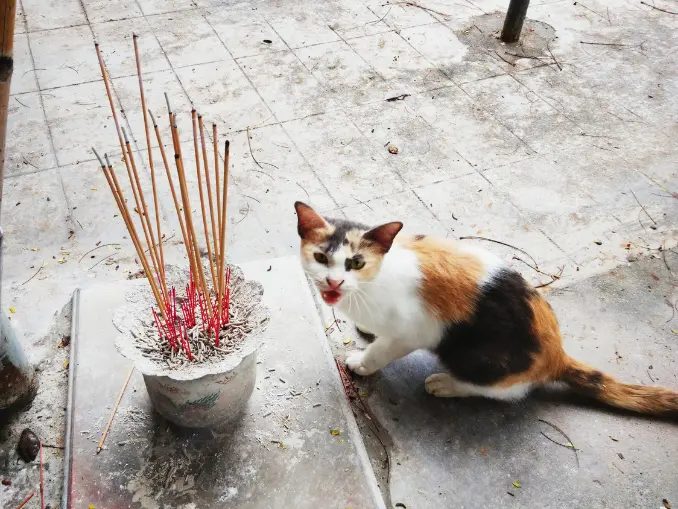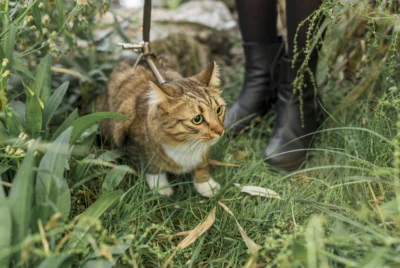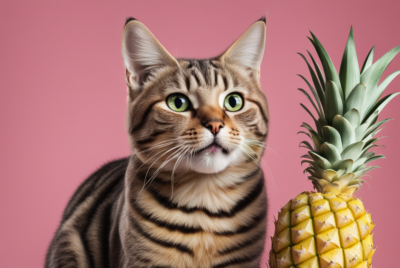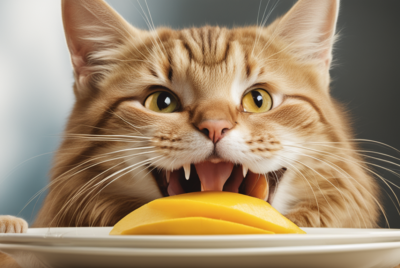Is Incense Harmful to Cats? What Pet Owners Should Know
Incense has been used for centuries to create pleasant aromas and enhance spiritual practices. But as a cat owner, have you ever wondered, if incense is bad for cats? Many pet owners are unaware of the potential dangers associated with burning incense around cats and the possible effects on their health.
So, in this blog post, we will provide guidance on recognizing and responding to incense exposure in cats, including identifying symptoms, taking immediate actions, and knowing when to contact a vet when you suspect that is incense bad for cats.
The Dangers of Incense for Cats
Incense has been used for centuries, dating back to ancient China, for its pleasant aroma and spiritual significance. However, burning incense can pose risks to our feline friends, as they are more sensitive to strong odors and harmful chemicals than humans.
Respiratory Problems
Burning incense can be harmful to cats because it produces smoke that contains a mix of fragrances and particles. This smoke can irritate and inflame a cat’s delicate respiratory system, leading to respiratory problems. Symptoms of respiratory problems in cats may include:
- Labored breathing
- Shortness of breath
- Increased respiratory rate
- Wheezing
It is important to avoid burning incense around cats to protect their respiratory tract health.
Beyond respiratory issues, incense smoke may irritate your cat’s eyes, leading to watery eyes and discomfort. Maintaining fresh air and appropriate ventilation can mitigate these symptoms and lessen the incense smoke’s impact on your cat’s health.
Toxic Ingredients
Certain ingredients in incense, such as certain essential oils, can be toxic to cats and cause adverse reactions when inhaled or ingested, making incense bad for cats. Some essential oils, such as:
- oil of wintergreen
- oil of sweet birch
- citrus oil (d-limonene)
- pine oils
- ylang-ylang oil
These are particularly toxic to cats and you should avoid these. Ingestion of these substances can lead to harmful and toxic effects on your cat’s health.
Long-term exposure to toxic incense ingredients can have detrimental effects on a cat’s health, such as respiratory issues, sinus inflammation, and allergic reactions. Avoiding incense burning around cats is key to their well-being and to avert the detrimental effects of these toxic substances on their health.
Allergic Reactions
Cats can develop allergic reactions to incense, even though these reactions occur infrequently. Allergic reactions in cats may include sneezing, coughing, and watery eyes.
Various molecules in the incense smoke and certain compounds present in essential oils used in some types of incense are known to cause allergic reactions and respiratory issues in cats.
To reduce the risk of allergic reactions in cats, you should:
- Limit burning incense to a single well-ventilated room that is off-limits to your cat.
- Store away the incense away from cats.
- Seek veterinary assistance if your cat has ingested any incense.
- Use high-quality incense to help avoid allergic reactions.
Read also: When To Euthanize A Cat With Seizures? A Guide for Pet Owners

Safe Alternatives to Incense for Cat Owners
While incense can pose risks to your cat’s health, there are safe alternatives available that can help freshen the air in your home without harming your feline companion.
These alternatives provide a safer way to create a pleasant atmosphere in your home, as they do not produce harmful smoke or contain toxic ingredients. Choosing cat-friendly substitutes for incense lets you guarantee your cat’s safety and well-being, all while maintaining a home that smells fresh.
Reed Diffusers
Reed diffusers are a safe and effective alternative to incense for cat owners. They work by absorbing fragrance oil into reed sticks, which then emit the scent into the air. Reed diffusers do not produce smoke or involve combustion, making them a safer option for cats.
Yet, it’s crucial to choose reed diffusers that are pet-safe and free from harmful chemicals or essential oils. Utilizing reed diffusers with cat-safe essential oils allows you to maintain a pleasing aroma in your home without jeopardizing your cat’s health.
Natural Air Fresheners
Natural air fresheners, such as baking soda and vinegar, can help eliminate pet odors without posing any risk to your cat. Baking soda is a natural odor absorber that can be combined with essential oils or dried herbs to create a pleasant-smelling air freshener. Vinegar is another natural alternative that can help neutralize odors in your home.
Take into account that a few essential oils, being potentially toxic and dangerous, should not be used as air fresheners around cats. Utilizing natural air fresheners lets you efficiently eliminate odors and keep your home smelling good without risking your cat’s safety.
Pet-Friendly Candles
Pet-friendly candles, such as beeswax candles, are another safe alternative to incense for cat owners. These scented candles are made from natural ingredients and are scented with essential oils that are safe for cats. Pet-friendly candles provide a pleasant scent without the risks associated with incense smoke and toxic ingredients.
While using cat-friendly candles, it’s vital to monitor your inquisitive feline to avoid accidents like burns or swallowing dangerous substances. Opting for cat-friendly candles made from natural ingredients allows you to relish a fragrant home without jeopardizing your cat’s health.
Read also: Best Cat Kicker Toys in 2023: A Comprehensive Guide

Tips for Using Incense Safely Around Cats
If you still choose to use incense around your cat, it is essential to take precautions to ensure their safety.
Adopting these safety procedures can shield your cat from potential harm related to incense. Nonetheless, it’s always preferable to choose cat-friendly substitutes that offer a secure method to foster a pleasing ambiance in your home, devoid of the risks linked to incense smoke and toxic substances.
Proper Ventilation
Proper ventilation is essential when burning incense around cats, as it helps reduce the concentration of incense smoke and minimize its impact on your cat’s health. Here are some tips for ensuring proper ventilation:
- Open windows to allow fresh air to circulate.
- Use fans to help disperse the smoke.
- Avoid burning incense in small, enclosed spaces.
Consider using natural alternatives to incense, such as essential oils or candles.
By following these tips, you can create a safe and comfortable environment for your cat when burning incense.
In addition to providing proper ventilation, using a small room air purifier can help capture and destroy any remaining particulates in the air, further protecting your cat from the potential dangers of incense smoke.
Establishing adequate ventilation can lessen the risks tied to incense exposure and foster a safer environment for your cat.
High-Quality Incense
Using high-quality incense made from natural ingredients is a crucial factor in ensuring the safety of your cat.
Burning incense bad quality may not burn correctly, generating more hazardous and larger smoke particles that can irritate a cat’s respiratory system and potentially lead to health problems. It’s important to remember that burning incense produces smoke, so always choose high-quality products to minimize any risks.
High-quality incense is typically made from natural ingredients such as natural resins, herbs, and essential oils, which provide a more pleasant and authentic scent when burned.
Choosing high-quality incense and burning it in a well-aired area can minimize potential hazards to your cat’s health, as some might worry if incense kill cats.
Supervision and Storage
Supervising incense use and storing it safely out of your cat’s reach are essential aspects of ensuring your cat’s safety around incense. Cats are curious creatures and may be tempted to interact with incense sticks, ashes, or even hot ash, which can lead to potential harm such as burns or ingestion of hazardous substances.
To prevent accidents, follow these guidelines:
- Store incense sticks and ashes in a secure area where your cat cannot access them.
- If you must burn incense around your cat, ensure that they are in a separate room with proper ventilation to minimize their exposure to incense smoke.
- Prioritize your cat’s well-being anytime you use scented items in your home.
Recognizing and Responding to Incense Exposure in Cats
Identifying and reacting to incense exposure in cats is an integral part of safeguarding their safety and well-being. By following these steps, you can effectively handle any potential health issues arising from your cat’s exposure to incense.
Identifying Symptoms
Symptoms of incense exposure in cats include:
- Coughing
- Sneezing
- Watery eyes
- Difficulty breathing
- Excessive drooling
- Lethargy or weakness
- Watery or irritated eyes
The strong fragrances and irritants present in incense smoke can cause discomfort and irritation in a cat’s respiratory system, leading to these symptoms.
Monitoring your cat’s behavior during incense use is essential for recognizing any adverse reactions to the smoke. If your cat shows any of these symptoms, you should swiftly remove them from the area and ensure access to fresh air to help ease their discomfort:
Immediate Actions
If your cat shows signs of incense exposure, the first step is to remove them from the area where the incense is burning and provide fresh air to help alleviate symptoms.
Opening windows and allowing fresh air to circulate can help dilute and remove the irritants from your cat’s respiratory system, reducing their discomfort.
Unfortunately, there are no immediate home remedies specifically for alleviating the symptoms of incense exposure in cats. It is strongly recommended to seek veterinary care for proper treatment and guidance.
When to Contact a Vet
It is necessary to contact a vet if your cat’s symptoms persist or worsen after exposure to incense, as it may affect the cat’s respiratory system. Signs of severe respiratory distress may include:
- Intense breathing efforts
- Coughing
- Discharge from the nostrils
- Fever
- Cyanosis (blue discoloration of the skin)
In most cases, the symptoms of smoke inhalation from incense exposure in cats can last for 48-72 hours. Should symptoms extend beyond this period, it’s advised to seek a vet for more thorough evaluation and treatment.

Frequently Asked Questions
Is it bad for cats to smell incense?
Burning incense can be potentially dangerous for cats, as the smoke and aromatic particles released can harm their respiratory system and overall health. Inhaling the smoke and oils in incense can be toxic for cats if used in enclosed spaces or excessively, leading to possible health problems. It’s best to err on the side of caution and keep candles and incense away from your feline friend.
What happens if a cat eats incense?
Ingesting incense can be toxic to cats, potentially causing vomiting and diarrhea. If your cat exhibits these symptoms, contact your vet immediately as they may need oral medication. It’s important to also be aware that some incense from Thailand may contain ingredients that could harm your pet.
Can incense make cats cough?
Yes, cats can cough due to incense smoke exposure, as it can irritate the lining of the lungs and cause sneezing, coughing, congestion, and watery eyes. Rarely, cats may also have an allergy to particular molecules in the smoke, which can lead to more severe symptoms such as difficulty breathing.
Can incense kill cats?
Incense is unlikely to kill cats unless they have a pre-existing asthmatic condition or are exposed to toxic chemicals found in some incense.
Are reed diffusers safe for cats?
Reed diffusers themselves are not hazardous to cats, but the essential oils used in them can be dangerous. It is important to select pet-safe reed diffusers that do not contain hazardous chemicals or essential oils for the safety of your cat.
Read also: Can Cats Eat Bacon Safely? A Guide to Keeping Your Cat Healthy
Summary
It is essential for cat owners to be aware of the potential dangers associated with burning incense in their homes.
If you choose to use incense, ensure proper ventilation, use high-quality incense, and supervise its use and storage to minimize potential risks.
Always be vigilant in recognizing and responding to incense exposure in your cat, and do not hesitate to contact a vet if symptoms persist or worsen. The safety and well-being of your feline companion should always be the top priority.




